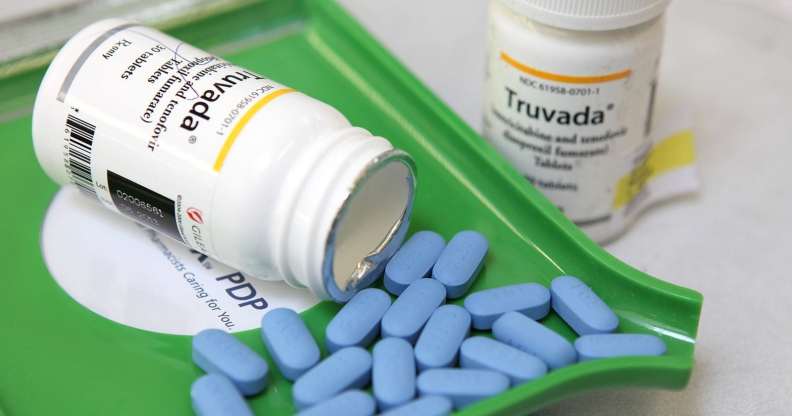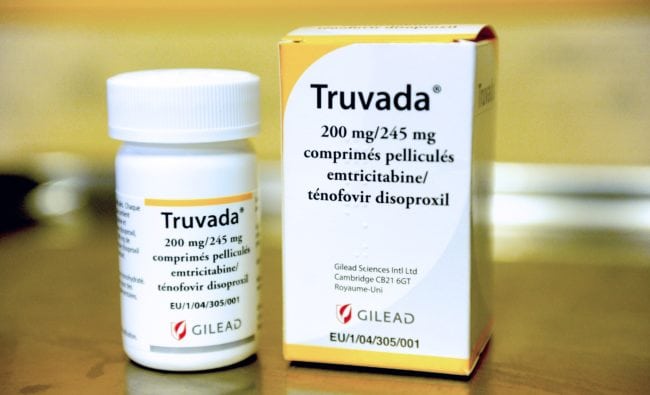HRW healthcare report reveals significant barriers for LGBT people

Antiretroviral drugs like Truvada can prevent the spread of HIV (Justin Sullivan/Getty)
A new report by Human Rights Watch (HRW) has revealed the state of accessing healthcare for LGBT people in the United States.
The research indicates that queer and trans populations encounter significant barriers, including facing discrimination from insurers or providers and long waiting lists for specialist services.
Additionally, the report found that LGBT people have restricted options when facing prejudice as there isn’t federal legislation which prohibits healthcare discrimination based on sexual orientation or gender identity.
The majority of the 81 interviewees told HRW that they had little or no access to LGBT-friendly healthcare providers in their area.
The head of one community center in rural Michigan said: “I do not know of any trans-affirming healthcare providers in the area. And I’ve talked to many trans people in the area.”
Some interviewees described driving two hours to attend a support group for gender-expansive youth, and others travelling two hours to attend therapy or meet with a trans-affirming doctor.
A survey by the National Center for Transgender Equality found that 29 percent of transgender people who are able to access transition-related care have to travel more than 25 miles to obtain it.
Other findings revealed some interviewees knew of very few providers in their areas who would prescribe PrEP, a medication that significantly lowers the risk of HIV infection by preventing HIV from taking hold in the body.
A psychologist in Knoxville, Tennessee, explained: “There are only two providers who’ll prescribe it—in a community this large. And the doctor we like, we overload him—we’re like, you have one option, and if you don’t have insurance, you’re pooched, because he’s expensive.”
While in Memphis, Tennessee, a healthcare provider similarly said that, in a city of a million people, the hospital they worked with was aware of three doctors who would handle PrEP referrals.

A box of antiretroviral drug Truvada displayed on a table in the Hospital of the northern French city of Bethune. (DENIS CHARLET/AFP/Getty Images)
The report also highlighted struggles for same-sex couples looking for reproductive health providers.
A lesbian woman in Mississippi recalled that, when she and her wife sought a fertility doctor in 2012, they were unable to find options in their area and contacted a clinic in Alabama. When that clinic informed the couple that they only treated heterosexual, married couples, they did not find an LGBT-friendly provider for a year.
The report primarily focused on LGBT people living in Mississippi and Tennessee, two of the states where statewide antidiscrimination protections do not prohibit discrimination based on sexual orientation and gender identity and where lawmakers have recently enacted exemptions permitting some providers to refuse service to LGBT people because of their religious or moral beliefs.
The full report can be read here.

